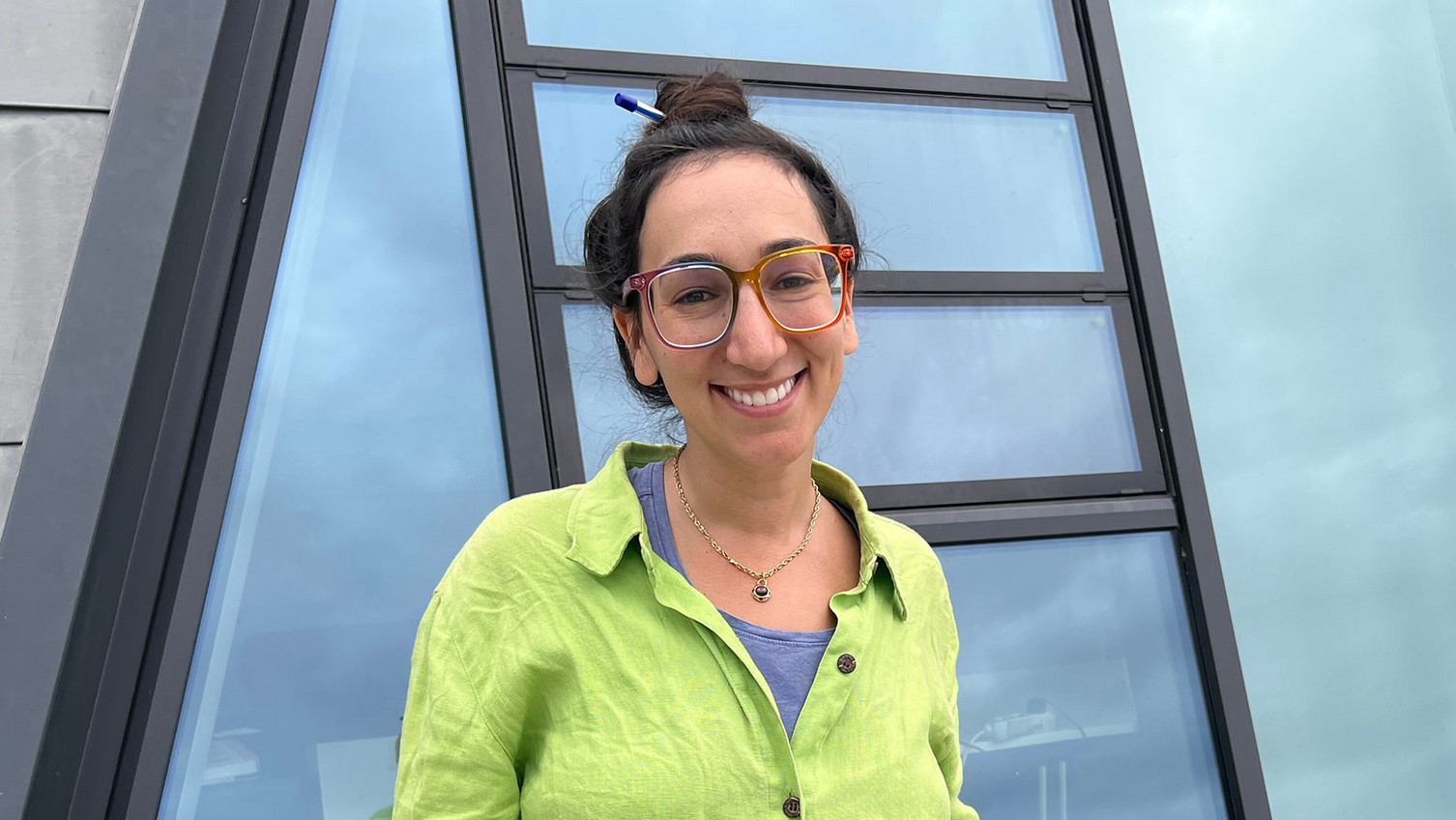Emily Sigman - From New Haven to Ghana by cargo ship and train
German Chancellor Fellowship
2023-08-22 The American graduated from Yale University with a joint master's degree in Forestry (Yale School of Forestry) and Global Affairs (Jackson Institute for Global Affairs). For the next months, she will work at the Social-Ecological Systems Institute (SESI) with Prof. Dr. Jörn Fischer and finish her book on cocoa.
Emily Sigman could hardly carry the suitcase for the big sea voyage. She had packed all the books and scientific articles on cocoa she could find. For seven weeks she was on trains and cargo ships on her way from New Haven to Ghana: "I didn't have internet or a TV and could concentrate entirely on the contents of my book case," the American recalls. She could have flown, but decided to use the long journey for her research. Emily Sigman is interested in leveraging cocoa as a lens for understanding complex systems: „We often think of cocoa only as the main ingredient in chocolate. But cocoa is much more than that - it is a complex substance born from trees with complex biological relationships and it has played a key role in many important moments across human history."
Emily traveled to many places to complete the research for her book, including Ghana where a large portion of the world’s cocoa is grown. There, in addition to studying the role cocoa played in securing Ghana’s independence from Great Britain, she used a PolItical Ecology approach to investigate how farming is mediated by a quasi-governmental agency called the Ghana Cocoa Board. “Many large corporations and conscious consumers are trying to improve sustainability and equity in west African cocoa farming by focusing on individual cocoa farmers,” she explains “but in many cases in Ghana—because of the influence of the Cocoa Board—such farmers are more of a myth than a reality.” Emily found that contemporary cocoa farming is often heavily dependent on service providers, most of whom are underpaid and often only employed seasonally." On the plantations, for example, there are people who come to fertilize; people who come to pollinate by hand or suppliers who bring the cocoa seedlings. The researcher conducted an interview study in Ghana. Her work was funded by the Fox Fellowship, a programme of Yale University. "What do you want people to know?" Emily Sigman asked the workers. Their answer was short: "That we exist."
The interviews are part of the book "In the Shade of the World Tree", which Emily Sigman hopes to complete during her stay at Leuphana. She writes from a socio-ecological perspective, addressing, among other things, the history of cocoa cultivation, the influence of colonisation, but also explaining cocoa ecophysiology and chemical interactions in the human body.
The American is sponsored by the Alexander von Humboldt Foundation's German Chancellor Fellowship. The fellowship is under the patronage of the Chancellor of the Federal Republic of Germany and supports the implementation of a self-selected project that supports academic development, is socially relevant and has a lasting public impact. Emily Sigman is one of fifty scholarship holders selected from a large pool of applicants from the USA, the People's Republic of China, India, Brazil and South Africa, who together form an international network of committed leaders.
At Leuphana, Emily Sigman will be supervised by Prof. Dr. Jörn Fischer, Professor for Sustainable Landscapes, during the scholarship. "I am very happy to be able to work at Leuphana and I am grateful for the support in applying for the Chancellor Fellowship," says the American. In addition to regularly working with members of the SESI team on lectures, presentations and on different projects related to restoration and social-ecological systems the trained forester Emily Sigman is assisting with the DFG-funded project "A Social-Ecological Systems Approach to inform Ecosystem Restoration in Rural Africa". Ecosystem restoration is considered from a social-ecological systems perspective. "Emily's background in restoration--especially from her previous work and connections at Yale--should help us to create synergies between the different activities around our DFG-funded project," says Jörn Fischer. As part of another fellowship, the Global Food Fellowship at Yale University, Emily Sigman researched fruit markets in Russia - both in terms of the products and the people who sell them. She conducted interviews and discussed her findings in the context of socio-ecological resilience. Additionally, Emily Sigman was an NSF fellow at Yale and most recently spent a year in Taiwan studying mandarin and working on the book with the support of a Richard U Light Fellowship.
After her stay at Leuphana, Emily Sigman is going to Dartmouth, one of the most renowned and oldest universities in the USA, for her PhD.

